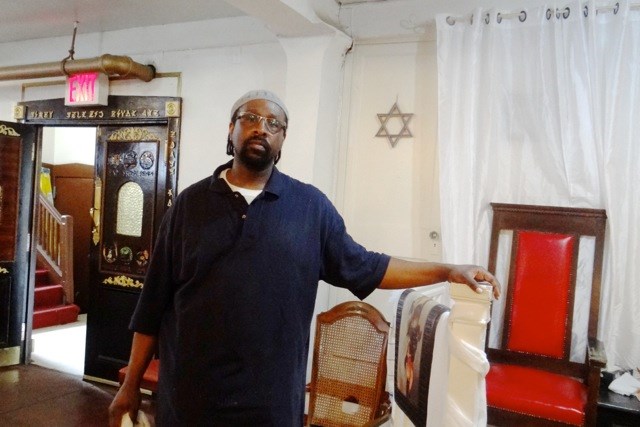
Tuesday, April 22, will mark the last day of Passover, commemorating the day God "passed over" and offered protection to the Israelite slaves during their exodus from Egypt into freedom.
The day has a meaning that is punctuated with great emphasis by the 6 million American Jews that celebrate it, as it corresponds with the tenets of American freedom.
But for Rabbi Baruch Yehudah and his congregation of 70 at B'Nai Adath Kol Beth Yisrael in Bedford-Stuyvesant, this year marked another Passover they did not have the freedom to celebrate in their synagogue's once-glorious sanctuary, but instead were confined to the "lower level."
"'The lower level' is what we affectionately refer to as our basement," said Rabbi Yehudah, grasping at a description that preserves a bit of dignity.
But the truth is, years-- eight to be exact-- of scaling down activities to the the lower-level, an area one-fifth the size of the building, not only has taken a mental toll on some of its members but, he admits, a physical toll on the size of his congregation.
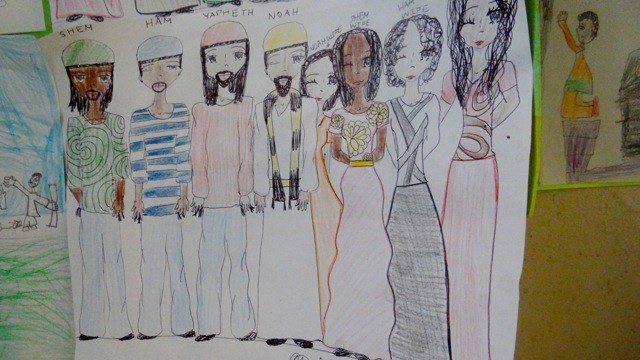
"We've had trouble gathering the way we normally do because we don't have the accessibility of our sanctuary," he said. "It's impacted our community... but we're an old community, and we're a strong community."
B'nai Adath Kol Beth Yisrael, Inc. was founded in 1954 by the late Rabbi Yirmeyahu Ben Daniel Ben Levi Ben Yisrael. He was the student of the late Chief Rabbi Wentworth A. Matthew, the founder of our community.
Initially, the congregation was located in Harlem on Lenox Avenue. Two years later, they moved to Bedford Stuyvesant on Patchen Avenue. And a little less than a decade later, in 1967, the congregation expanded and moved to its current location at 1006 Greene Avenue.
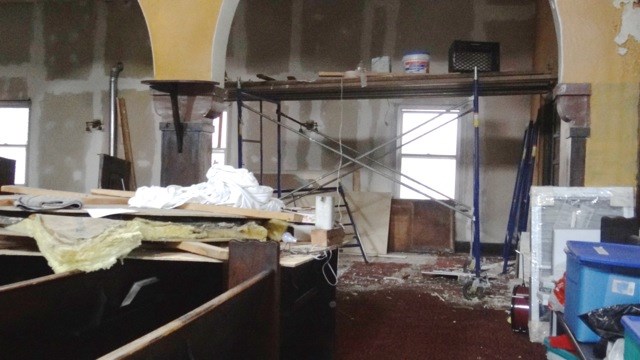
B'Nai Adath's sanctuary lies in total disrepair. And unless its members pay the $73,000 in fines to the City and raise the $4.5 million needed to renovate the 140-year-old building up to code, there may not be a synagogue at 1006 Greene Avenue, let alone a basement, to celebrate another Passover next year. They've been notified by the city that it needs to be brought up to 2014 ADA (American Disabilities Act) codes immediately.
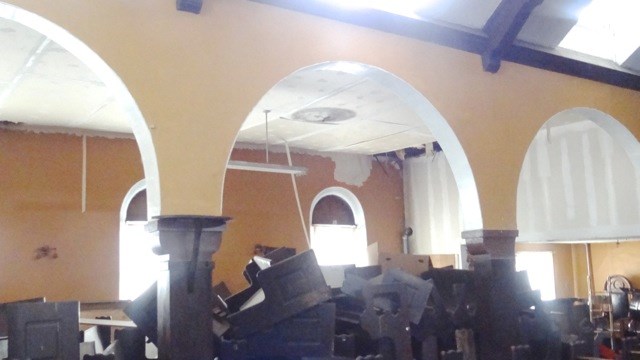
"I don't think about 'if' it gets repaired," said Rabbi Yehudah, who grew up in the synagogue and whose mother and father both were lifelong members.
"I only see "when," because I don't see it not taking place," he said belying the worry lines on his forehead. "This is the largest place of worship we have like this in the NYC area. So this is the hub."
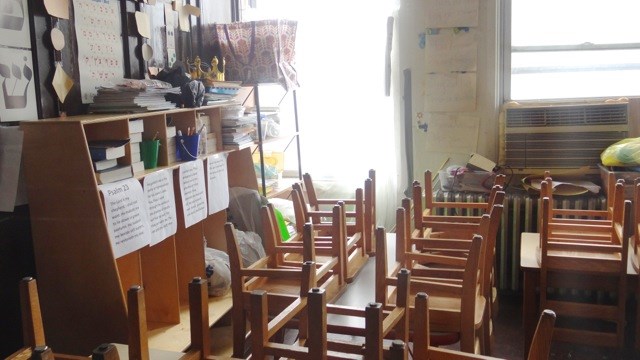
Located between the Satmar Jewish community of Williamsburg and the Lubavitch Jewish community of Crown Heights, the synagogue with a membership base of predominantly African-American Jews, seems to exist in a silo.
It's odd that neither Orthodox Jewish community on either side at no point in 70 years has found a need to lend a hand to the struggling synagogue.
"Historically, our community has not been a part of what people refer to as mainstream Judaism, not for any other reason, except ideological difference," said Rabbi Yehudah.
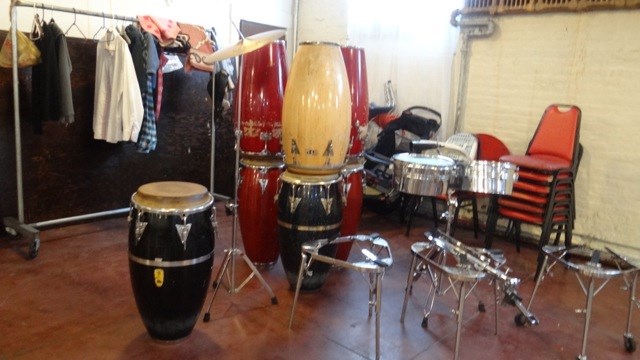
"Initially, Rabbi Matthew's desire was to join the board of Rabbis. But there were issues: Every sect was different. And some of the other Rabbis felt you had to do conversions according to what they wanted. But just like every other community has their Minhagim (customs), so do we. And the understanding that Matthews had of Torah was, we were people redeemed by God to do the law.
"In the scriptures it says that 'Although I will scatter you, I will gather you again and I will sift you. And not the least grain shall fall to the ground.' So Rabbi Matthews said we will continue to work, continue to build our community; we're always open to work with whatever community there is.
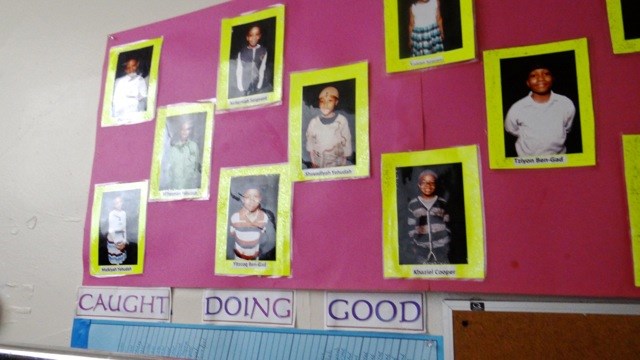
And build they did. B'Nai Adath has long been known in the community as a lighthouse for the lost, homeless and needy.
"We raise money to donate after natural disasters strike communities; we give our blankets to the homeless. We feed people who are hungry, an we aren't city funded," said Rabbi Yehudah. "From our own funds, we used to feed 100 people a day sit-down meals with flowers on the table, to make them feel good about coming.
They haven't provided the daily meals in four years. In fact they haven't been able to provide much for a long while, as the building atrophies and the congregation slowly has whittled away with it.
"We miss the days when we were able to do those kinds of things," Rabbi Yehuda said, sighing.
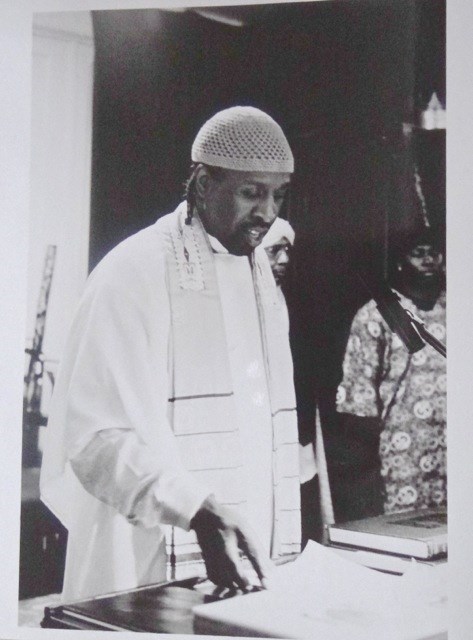
Brooklyn Borough President Eric Adams-- then a state senator-- honored B'Nai Adath with a citation last July, praising it for "exemplary service," and started them on their way towards getting the building recognized as an historic site.
In the meantime, how do they plan to raise the $4.5 million, and who do they plan to ask?
"Anyone who feels that their generosity would be well spent in preserving a house of worship that works to feed the hungry and helps the community, that's who we're asking," said Rabbi Yehuda.
So far, a New Jersey-based architect named Joshua Zinder has been one of the first people to step forward.
"The plan is to raise the money and do the entire project," Zinder told The Daily News. "It amazes me. Despite all the issues they have, they do such incredible things. Even when they have nothing, they are giving to the needy. That's so noble."
"We will have about 200 people tonight," said Rabbi Yehuda of the Seder he was preparing for last Monday.
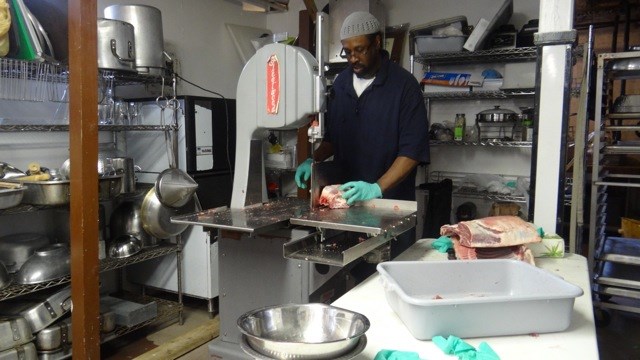
And for a moment, the worry lines on his forehead disappeared. He he looked happy. Hopeful.
Two hundred people. A number that perhaps reflects the congregation's otherwise true size-- or at the very least, its potential-- was something that clearly put the Rabbi at ease.
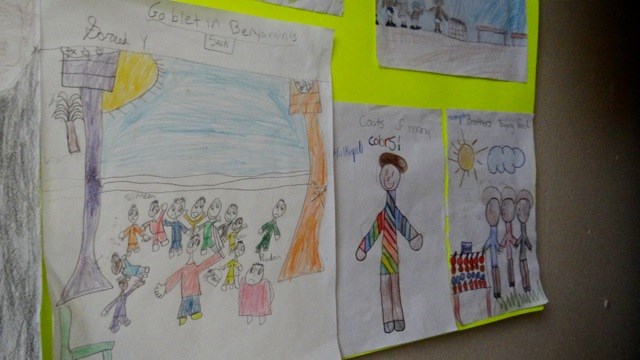
"What this is is a community that has been devoted and committed," he said. "A community that has not given up. And what we don't want is for people not to know what's at stake here."



